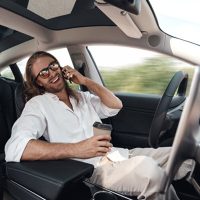Tesla Held Partially Liable In Autopilot Failure Case

In September 2025, a federal jury in Florida held that Tesla was at least partially liable for a 2019 crash that killed one person and severely injured another. The verdict imposed more than $240 million in damages, and while a pretrial agreement limited possible punitive damages, the verdict is still remarkable for its clear lack of certainty that U.S. roads are safe with Teslas on them.
Driver Breached Duty Of Care
On the day of the crash, the driver “blew through” flashing lights, a stop sign, and a three-way intersection before he struck a parked vehicle containing a couple. One of the spouses was killed, while the other sustained a traumatic brain injury (TBI). While both the court and the driver himself placed some negligence onto the driver’s shoulders, the jury held that Tesla should also bear a share of liability because its program enabled drivers to act recklessly.
While Tesla has articulated their intention to appeal the verdict, the point remains that a jury saw fit to hold Tesla liable, particularly after allegations from the plaintiffs’ attorneys that Tesla allegedly concealed evidence like video footage from the vehicle immediately after the accident. In addition, the fact was pointed out that Tesla refers to their program as “Autopilot,” rather than the more accurate ‘driver assist,’ which could create false expectations on the part of the user.
Human Drivers Must Exercise Care
Some might wonder why driver assist programs are seen as legally problematic. The answer is that in most jurisdictions (Florida included), each driver owes an unspoken duty to other drivers to exercise reasonable care while operating their vehicle. Too often, drivers ‘outsource’ the work of keeping their eyes on the road to the machine (when as of this writing, driver assist programs are unable to do this on their own).
Failure to exercise reasonable care is one of the cornerstones for establishing negligence at common law. While the Tesla verdict does not explicitly state that driver assist programs complicate the duty of care or are negligent by default, it does raise the point that a driver using such programs is often abdicating their responsibility to pay attention to the road. If you are injured in an accident with a “self-driving” vehicle, these are points that should be raised in court.
Contact An Orlando Auto Accident Attorney
Even if Tesla successfully appeals the verdict in this case, it is still important that the jury saw fit to issue such a warning about the efficacy of driver assist programs as they are at the moment. One can only speculate about whether or not full self-driving will be viable in the future. If you have been injured in an accident with a vehicle using driver assist, an Orlando auto accident attorney from the Hornsby Law Group can help manage your concerns. Contact our office today to schedule a consultation.
Source:
apnews.com/article/tesla-miami-musk-benavides-selfdriving-autopilot-autonomous-vehicles-c342f2716b1ec4e9ede09b8e958751b7